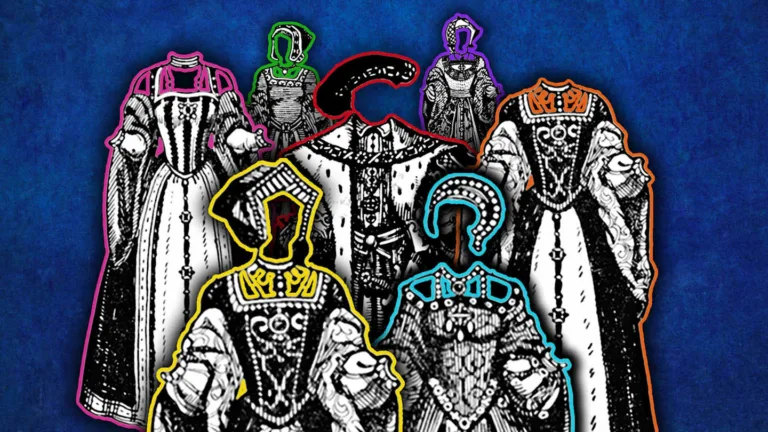Cleopatra, the last active ruler of The Ptolemaic Kingdom Of Egypt, remains one of history’s Most Captivating Figures. Her life, filled with political intrigue, romance, and ultimately, tragedy, has fascinated scholars and the general public for centuries. Beyond her personal story, Cleopatra’s legacy extends to her children, who were caught in the whirlwind of power struggles that defined late Roman antiquity.
Her son Ptolemy XV Caesar (Caesarion), Born To Cleopatra and Julius Caesar, was declared heir apparent by Mark Antony in 34 BCE. This ambitious declaration placed him at the center of a complex web of alliances and rivalries, ultimately leading to his untimely demise at the hands of Octavian when he was just seventeen. Cleopatra’s twins with Antony, Alexander Helios and Cleopatra Selene Ii, were bestowed kingdoms during the Donations of Alexandria but their lives took Divergent Paths After Their Parents’ deaths.
While Alexander Helios’ fate remains shrouded in mystery after being sent to live with Octavian’S Sister, Cleopatra Selene married King Juba II of Numidia and ruled Mauretania for Two Decades. Finally, Ptolemy Philadelphus, born in 36 BCE, was named ruler of Syria, Phoenicia, and Cilicia but his life after being sent to Rome is also unknown. These children, heirs to a powerful legacy, were ultimately swept up in the tides of history, their destinies intertwined with the rise and fall of empires.
Cleopatra’s Children: Caesarion, Alexander Helios, and Cleopatra Selene Ii
Cleopatra’s children were not merely pawns in her political game; they represented the continuation of her dynasty and the hope for a future Ptolemaic Kingdom. Caesarion, her son with Julius Caesar, was perhaps the most prominent figure Among Them. Declared heir apparent by Antony, he embodied the symbol of continuity between Rome and Egypt. Sadly, his life was cut short at the age of seventeen by Octavian’s forces, ending any hopes for a united empire under the Ptolemaic banner.
Then there were her twins with Mark Antony, Alexander Helios and Cleopatra Selene Ii. Both received kingdoms during Antony’s ambitious Donations of Alexandria, demonstrating Cleopatra’s belief in their potential leadership. While Alexander’s fate remains shrouded in mystery after being sent to live with Octavian’s sister, Cleopatra Selene carved out a successful life for herself. She married King Juba Ii of Numidia and ruled Mauretania for two decades, ensuring a continued Ptolemaic presence in North Africa.
Ptolemy Philadelphus, born in 36 BCE, was the youngest of Cleopatra’s Known Children. He was bestowed with the rule of Syria, Phoenicia, and Cilicia, territories rich in resources and strategic importance. However, Following His Parents’ demise, he too was sent to Rome, Leaving His Later Life Unknown. The lives of these children offer a glimpse into the complexities of power and legacy during this turbulent period in history. Their fates were forever intertwined with the rise and fall of empires, serving as reminders that even the most powerful individuals are ultimately subject to the whims of time.
The Donations of Alexandria: Kingdoms for Antony’s Heirs
In 34 BCE, Mark Antony, Cleopatra’s lover and a prominent general in The Roman Republic, made a bold move to solidify his power and secure his legacy alongside his beloved Queen. He orchestrated the Donations of Alexandria, a series of decrees that bestowed Vast Territories Upon Her Children, effectively creating miniature kingdoms under their rule. This grand gesture aimed to establish Antony’s authority in the East and solidify Cleopatra’s position as the rightful ruler of Egypt.
These donations were strategically designed to appease different factions and create alliances within the Roman world. Alexander Helios was granted control over Media Atropatene, Armenia, and parts of Asia Minor, positioning him as a powerful force in the East. Cleopatra Selene Ii received Mauretania, a wealthy kingdom on the North African coast, ensuring a Ptolemaic presence outside of Egypt. Ptolemy Philadelphus was entrusted with Syria, Phoenicia, and Cilicia, territories rich in resources and historically significant for their strategic importance.
However, these ambitious plans ultimately came undone with Antony’s defeat at The Battle Of Actium against Octavian. The Donations of Alexandria were declared null and void by Octavian, leading to the deaths or exile of many of Cleopatra’s children and effectively marking the end of the Ptolemaic dynasty.
 Alexander Hamilton Sons: Legacy and Lives of His Children
Alexander Hamilton Sons: Legacy and Lives of His ChildrenFateful Endings: Murder, Exile, and Unknown Destinies
The lives of Cleopatra’s children were tragically entangled with the tumultuous political landscape of late antiquity. While some met their ends in violent and abrupt fashion, others faced exile and uncertainty, leaving historians to piece together fragments of their destinies. Caesarion, declared heir apparent by Antony, was brutally murdered by Octavian’s forces at the tender age of seventeen. This act solidified Rome’s victory and effectively extinguished any possibility of a Ptolemaic resurgence.
Alexander Helios, although bestowed with a grand kingdom, vanished from historical records after being sent to live with Octavian’S Sister. His fate remains unknown, shrouded in the mists of time. Cleopatra Selene Ii, however, managed to carve out a successful life for herself. She married King Juba Ii of Numidia and ruled Mauretania for two decades, securing her place as a powerful queen in her own right. Ptolemy Philadelphus, granted control over Syria, Phoenicia, and Cilicia, also met an uncertain fate after being sent to Rome.
The stories of Cleopatra’s children highlight the fragility of power and the capricious nature of history. Their lives serve as a poignant reminder that even those born into privilege are not immune to the cruel realities of war, Political Intrigue, and the often-unpredictable turns of fate.
Ptolemy Philadelphus: Ruler of Syria, Phoenicia, and Cilicia?
Born in 36 BCE, Ptolemy Philadelphus was Cleopatra’s fourth and youngest known child. His early life was marked by both privilege and instability, as his parents navigated the treacherous waters of Roman politics. Despite being born into a world on the brink of upheaval, he was bestowed with significant power at a young age: the rule over Syria, Phoenicia, and Cilicia – territories vital for trade, Strategically Important, and historically rich in cultural heritage.
This vast domain promised a future of influence and prosperity for Ptolemy Philadelphus. He possessed the bloodline of the Ptolemies, renowned rulers who had maintained Egypt’s independence for centuries. His position also held symbolic weight, representing a continuation of Cleopatra’s ambitions to establish a lasting Ptolemaic dynasty beyond Egyptian borders. However, his reign was tragically cut short by the events that unfolded after Antony and Cleopatra’S Defeat.
Sent to Rome alongside his siblings Following His Parents’ deaths, Ptolemy Philadelphus disappeared from historical records. His fate remains unknown, leaving historians to speculate about his life after arriving in the Roman capital. Did he live a quiet life among the elite? Was he granted some position of power within the Roman administration? Or did he meet an untimely end amidst the shifting political landscape? The mystery surrounding Ptolemy Philadelphus serves as a poignant reminder that even those born into power are not always guaranteed a happy ending.
Legacy in the Sands of Time
Though Cleopatra’s Children Ultimately Met Tragic Ends, their existence left a lasting imprint on history. Their stories serve as a poignant reminder of the personal cost of political ambition and the volatile nature of power dynamics in ancient civilizations. Even though they never ascended to the throne or ruled independently for Long Periods, their lives intertwined with key historical events and figures, forever linking them to the legacy of Cleopatra Caesar son.
Their births and subsequent deaths highlight the complexities of Cleopatra’s relationships with Julius Caesar and Mark Antony, revealing how personal connections were often entangled with political strategies. The Donations of Alexandria, While Ultimately Failing, demonstrate Cleopatra’s desire to secure a future for her children beyond Egypt and establish a lasting Ptolemaic legacy. In this sense, Their Lives, however brief or obscured by time, offer valuable insights into the cultural and political landscape of late antiquity.
Furthermore, their stories continue to captivate historians and the general public alike. They serve as inspiration for countless works of fiction, film, and literature, demonstrating the enduring fascination with Cleopatra and her legendary family. Despite the uncertainties surrounding their lives, they remain significant figures in our understanding of ancient history, reminding us that even those who fade from the limelight can leave behind a lasting echo in the sands of time.










